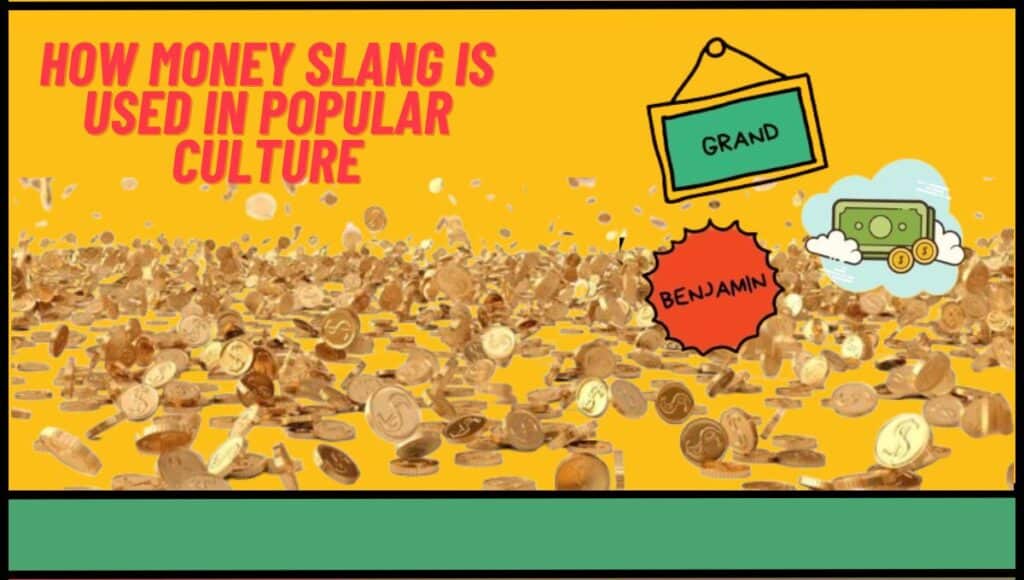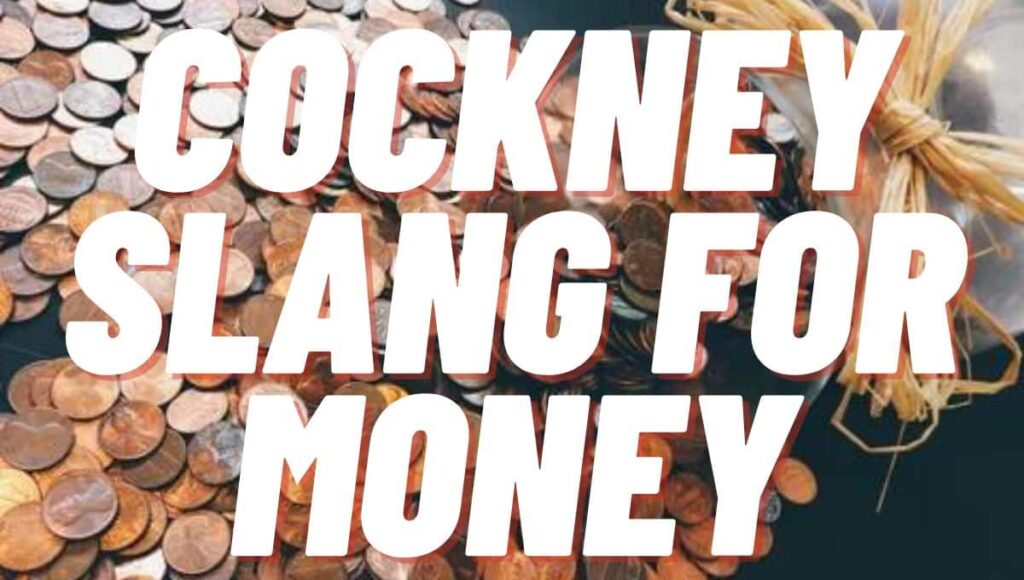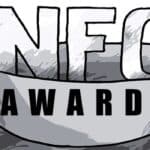Oi, you lot! Get ready to dive into the wild and whacky world of Cockney slang for money. We’re talkin’ about those cheeky rhymes and clever word-swaps that’ll have you grinnin’ from ear to ear.
Imagine casually droppin’ phrases like “bees and honey” or “sausage and mash” when chattin’ about your hard-earned “bread“. Sounds bonkers, right? But that’s just a taste of the linguistic magic Cockneys have been whippin’ up for ages.
These unique expressions are more than just a bit of fun – they’re a window into the rich culture of London’s East End. So, let’s get stuck in and explore the fascinating history, origins, and enduring appeal of Cockney money slang, shall we?
Slang For Money
Let’s kick things off with the good stuff – the crème de la crème of Cockney money slang. Imagine casually dropping phrases like “bees and honey” or “sausage and mash” when talking about your hard-earned “bread.”
Sounds bonkers, right? But that’s just a taste of the linguistic magic Cockneys have been whipping up for ages. These cheeky rhymes and clever word swaps are more than just a bit of fun – they’re a window into the vibrant culture of London’s East End.
History And Origins Of Money Slang
To truly appreciate the depth of Cockney money slang, we’ve got to rewind the clocks to 19th-century London. Back then, the working-class neighborhoods of the East End were a melting pot of cultures, each one adding their unique flavors to the local lingo.
From Yiddish to Romani, Irish to, well, just about everywhere else, Cockney slang blended it all into one deliciously complex linguistic tradition. It was a coded way for the locals to communicate, build camaraderie, and keep the “raggies” (that’s slang for cops) out of the loop.
Famous Cockney Phrases Related To Money
Over time, some of these money-related Cockney phrases have become so iconic, they’ve seeped into mainstream culture:
- “Cash in hand” – Immediate payment, plain and simple.
- “Filthy lucre” – Ill-gotten or dishonest money, coined way back in the Bible translation days.
- “Bob’s your uncle” – Everything’s going swimmingly, success is practically guaranteed.
And let’s not forget the classic numerical slang:
- “A ton of money” – A cheeky way to refer to £100.
- “A pony” – That’ll be £25, mate.
- “A monkey” – Ooh, big spender! We’re talking £500 here.
See what I mean? These phrases are like little linguistic gems, each one sparkling with a touch of East End charm.
How Money Slang Is Used In Popular Culture

Movies
You can’t talk about Cockney slang without giving a nod to the big screen. Films like “Lock, Stock, and Two Smoking Barrels” and “Snatch” are practically masterclasses in the art of East End lingo.
Watching those fast-paced, slang-filled dialogues is like being transported straight to the heart of London’s gritty underworld.
Music
The music scene has also been a hotbed for Cockney slang, with bands like The Clash, The Kinks, and Madness weaving those unique turns of phrase into their lyrics.
Hearing those familiar rhymes and clever wordplays adds an extra layer of authenticity and raw East End energy to the tunes.
Literature
Then there are the literary masterminds like Charles Dickens and Martin Amis, who’ve immortalized Cockney slang in their works.
Reading characters speak in that unmistakable dialect is like being transported back in time, strolling down the narrow streets of Victorian London.
Learning And Understanding Cockney Slang For Money
Immerse Yourself
So, you want to be a proper Cockney word-slinger? The first step is immersion, mate.
Surround yourself with movies, music, and books that feature characters chatting away in that distinctive dialect. Before you know it, those rhymes and wordplays will start to feel like second nature.
Practice With Native Speakers
But nothing beats learning from the source, you know? Strike up a chat with a born-and-bred East Ender, either in person or through online communities dedicated to preserving this linguistic gem.
Not only will you get to practice your Cockney slang skills, but you’ll also gain invaluable insights into the culture and history behind it all.
Study Resources
If you’re more of a book-learner, no worries! There are plenty of resources out there to help you master the art of Cockney money slang.
From comprehensive dictionaries to online courses, these materials will have you rhyming like a pro in no time.
Slang For Money (General)
Of course, Cockney slang is just one delicious slice of the money slang pie. All around the world, people have been coming up with their own unique ways to talk about the “dough”:
- “Bucks” – A classic Americanism for dollars.
- “Greenbacks” – Referring to the green hue of U.S. paper money.
- “Quid” – The British way to say “pounds sterling.”
- “Bills” – Because, well, it’s literally paper money.
- “C-notes” – That’s a crisp $100 bill featuring Benjamin Franklin’s mug.
The list goes on and on, each term adding its own flavor to the rich tapestry of money-related slang.
The Linguistic Magic Of Slang
At the end of the day, what makes money slang so special isn’t just the words themselves – it’s the creativity, culture, and camaraderie they represent.
These playful terms and expressions are like little linguistic inside jokes, shared between communities and passed down through generations.
They’re a reminder that language is a living, breathing thing, constantly evolving and adapting to the people who use it.
So the next time you hear someone toss out a cheeky rhyme like “bees and honey” or “sausage and mash,” don’t just brush it off as nonsense. Take a moment to appreciate the linguistic magic happening right before your ears.
Because in that quirky turn of phrase, you’re witnessing a vibrant tradition that’s been keeping the streets of London (and beyond) entertained for centuries.
The Enduring Appeal Of Cockney Slang
In a world where language trends come and go faster than you can say “rah,” Cockney slang has managed to maintain its charm and relevance for generations.
Perhaps it’s the playful wordplay that keeps us coming back for more. Or maybe it’s the way these expressions conjure up vivid images of London’s storied past.
Whatever the reason, one thing’s for sure: Cockney slang isn’t going anywhere anytime soon.
Even as the East End continues to evolve and change, these unique turns of phrase remain a beloved part of the local culture.
They’re a linguistic link to the past, a reminder of the rich heritage that has shaped this vibrant corner of London.
Keeping Cockney Slang Alive
Of course, preserving this colorful language is no easy feat. As with any linguistic tradition, there’s always a risk of it fading away or becoming diluted over time.
That’s why organizations like the Cockney Heritage Trust and the East End Preservation Society have made it their mission to keep Cockney slang alive and kicking.
Through educational programs, community events, and good old-fashioned storytelling, they’re ensuring that this unique dialect remains a vibrant part of East End culture for generations to come.
Passing The Torch
But the real key to keeping Cockney slang thriving lies with the people themselves.
It’s about parents and grandparents passing down those cheeky rhymes and clever wordplays to their kids, like linguistic heirlooms.
It’s about friends gathering at the local pub, swapping stories and slinging slang back and forth like it’s second nature.
And it’s about newcomers to the area embracing this rich linguistic tradition, learning the ropes, and adding their own unique spin to the mix.
Because at its core, Cockney slang isn’t just a way of speaking – it’s a way of life, a celebration of the vibrant spirit that has defined London’s East End for centuries.
Read This Post
The Global Influence Of Cockney Slang
While Cockney slang may have been born on the streets of London, its influence has since spread far and wide.
These days, you’re just as likely to hear someone drop a cheeky “bees and honey” in New York City as you are in Bethnal Green.
Thanks to the power of pop culture and globalization, Cockney expressions have become a part of the global linguistic landscape, injecting a touch of East End flavor into conversations around the world.
Cockney Slang In Pop Culture
From movies and TV shows to music and literature, Cockney slang has left an indelible mark on popular culture.
Who could forget those iconic scenes from “Lock, Stock, and Two Smoking Barrels” or “Snatch,” where the characters’ rapid-fire Cockney banter was virtually a character in itself?
Or the way bands like The Clash and The Kinks seamlessly wove Cockney rhymes into their lyrics, adding an extra layer of grit and authenticity to their sound?
These pop culture moments have not only helped to popularize Cockney slang on a global scale, but they’ve also served as a powerful reminder of the language’s enduring cultural significance.
Embracing Linguistic Diversity
At its core, the global appeal of Cockney slang speaks to a larger appreciation for linguistic diversity.
In a world that often prioritizes conformity and standardization, these unique dialects and regional expressions offer a refreshing dose of color and character.
They remind us that language is more than just a tool for communication – it’s a living, breathing reflection of the cultures and communities that shape it.
By embracing Cockney slang and other regional dialects, we’re celebrating the rich tapestry of human language in all its vibrant, multifaceted glory.
And who knows? Maybe one day, phrases like “bees and honey” and “sausage and mash” will become as universally recognized as “hey, how’s it going?”
Conclusion
Cockney slang for money is a vibrant linguistic tradition born on the streets of London’s East End. From cheeky rhymes like “bees and honey” to clever wordplays like “sausage and mash”, these unique expressions have been keeping Londoners entertained for centuries.
Originating in the 19th century as a coded way for locals to communicate, Cockney money slang blends cultural influences from Yiddish, Romani, and beyond into one deliciously complex lingo. And it’s not just a quirky dialect – it’s a celebration of the area’s rich heritage and tight-knit community spirit.
Whether you’re a born-and-bred East Ender or a newcomer to the scene, immersing yourself in this colorful language is an absolute must. So go on, give it a go – your mates will be proper impressed, I swear down!
FAQ’s
What Is 500 Pounds In Cockney Slang?
500 pounds is called “a monkey” in Cockney rhyming slang.
What Is Cockney For 20 Quid?
20 pounds is called “a score” in Cockney money slang.
How Do You Say Money In Uk Slang?
Common UK slang words for money include “quid”, “dough”, “bread”, and “bucks”.
Why Is 25 Quid Called A Pony?
25 pounds is nicknamed “a pony” in rhyming slang, but the origins are unclear.
Why Is 500 Pounds Called A Monkey?
The term “monkey” for 500 pounds comes from the Cockney rhyme “monkey/500”.







